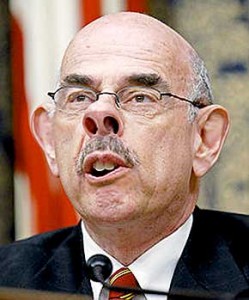Obama can boast of job growth for the month of March—162,000— because, from his standpoint, an accretion of the parasitical sector (government) is as good, if not better, than that of the private, productive economy. Laissez faire capitalists understand that the “U.S. Census Bureau’s addition of 48,000 jobs for its once-in-a-decade head count of the U.S. population” will hit the private sector hard. Barack doesn’t.
Note that none of the modest job gains in other industries, respectively, rivals the gains of one government department, the Census Bureau. And sixteen thousand other IRS thugs will be hired to enforce the healthscare bill.
That rising tide of hiring brought relief to some long-suffering sectors of the economy. Construction added 15,000 jobs, the first increase of any kind in the sector since June 2007. Manufacturing also added 17,000, with 2,500 of that gain coming at auto plants and their parts suppliers.
Retailers added nearly 15,000 jobs and leisure and hospitality accounted for 22,000 more jobs.
What interests me about Obama’s blather is not so much that he has declared that the “country has successfully ‘turned the corner,'” but that in response to criticism of his interventionist policies, he “insists the country cannot return to the more conservative hands-off regulatory philosophy traditionally favored by the GOP.”
The US economy is regulated to the hilt; legislators of both parties have placed it in knots of bondage.
Take banking. “For all the talk about deregulation run amok, banking is one of the more heavily regulated sectors in most Western economies. In the US, for instance, banks have numerous regulators, ranging from the federal Reserve System to the Federal Deposit Insurance Funds to a variety of minor offices and state regulators, all acting in concert. Not only did these regulators fail but they egged on the excesses which later exploded. The more consolidated regulatory approach of the UK didn’t seem to fare much better. We’re counting on the regulators to fix the markets but there is very little talk about how to fix [or rather fire] the regulators. [Tyler Cowen, Times Literary Supplement, February 26, 2010]
Peter Schiff sees a bubble in government brewing. In “The Fed’s Last Hurrah,” he writes:
“While the earlier booms at least provided the illusion of prosperity and some fun while they lasted, the government bubble will cripple the economy and deliver widespread misery to the vast majority of Americans.
Of course, there will be winners in the government bubble, at least for a while. As was the case with the stock and real estate bubbles, plenty of money will be made by the well-connected and parasitic classes. Government employees will continue to enjoy pay raises at our expense, as will anyone benefiting from the new wave of subsidies, such as Wall Street investment bankers, financial speculators, and those working in health care or education.
These gains will come at the expense of the taxpayers who foot the bill and the consumers who face higher prices. As government grows, it deprives the private sector of the resources it needs to survive and grow. The result is a lower overall standard of living. Not only are government jobs less productive than private sector jobs, but bureaucratic interference actually makes the remaining private sector jobs less efficient as well.”
Update (April 5): FRED REED RIPS apart the US Managerial State. No one on this site buys the line you hear from Mr. Hannity, and other iconic conservatives, that the US BB (before Barack) was a free country:
“Washington is out of control. It does as it likes, without restraint. It spends American money and American lives to fight remote wars for which it cannot provide a plausible reason. It determines what our children will be taught, who we can hire and fire, to whom we can sell our houses, whether we can defend ourselves, even what names we can call each other. The feds read our email and track the web sites we visit, make us hop around barefoot in airports at the command of surly unaccountable rentacops. They search us at random in train stations without even a pretense of probable cause. We have no influence over them, no way of resisting.
… Washington has learned to insulate itself from interference by the population. Huge impenetrable bureaucracies beyond public control make regulations that amount to laws, spending God knows how much money to do God knows what for the benefit of the interest groups that run the government. These bureaucrats cannot be fired and usually cannot be named. Congress, like the bureaucracies, serves not the United States but the big lobbies.” …

